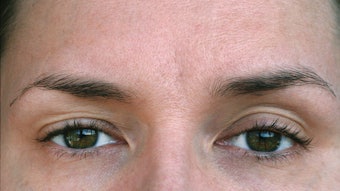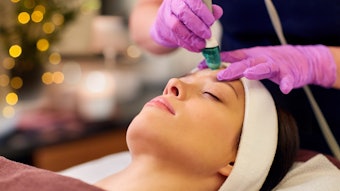
If you have attended any of my talks, workshops or sales training courses or have read any of my blogs or published articles, you know that my passion and deep commitment lies in helping medical aesthetic practices run their business to ensure they have a more sustainable, efficient and profitable practice.
According to the Exit Planning Institute State of Owner Readiness Survey:
- 83% of practice owners have no written succession plan.
- 60% of physicians said they would retire today if they could.
- 49% have done no exit planning at all.
My goal is for you to be able to scale and prepare yourself for an exit strategy so that all the pieces are in place when you are ready to sell or retire.
I want you to ask yourself these questions:
- Would you be confident that your business is where it needs to be to sell for what you deserve based on your current EBITDA?
- How are your financial statements structured?
- If private equity were to approach you today for a potential acquisition (and trust me, they are hungry, aggressive and calling many practices), do you know what your business might be worth?
I know that you are highly skilled as a provider, but you equally need to be a very savvy business owner who is not just working in your business but on your business as well. So, let’s dive into the topic of setting your practice up for an exit strategy.
Why the Sudden Surge in Private Equity Acquisition Interest?
If we think about the aesthetic business, it has been one of the only businesses that have been steady, recession-proof and even pandemic-proof to some degree, as we know many businesses saw increases and continue to flourish. Why? Because aesthetic medicine is retail medicine. Many private aesthetic practices have what private equity is looking for—recurring revenue.
Recurring Revenue Model
Just like Software as a Service (SaaS), many thriving aesthetic practices have a recurring revenue model such as memberships, loyalty programs and packages for procedures and follow-up treatments, which is why patient retention is so important.
Cash-Based Business Model
In addition to reviewing your financial projections, which must be very easy for a potential buyer to analyze, as a medical spa or plastic surgery practice, you have clients coming in paying cash on a regular basis. It is all cash-based and prepaid without having to wait for insurance reimbursement or money to come in, which is very attractive to private equity.
Aging Population
There is an ever-growing demand for aesthetic services/procedures, ranging from Baby Boomers, Gen X, Gen Y, Millennials and Gen Z groups. All these demographics are ultimately looking to feel good both inside and out. This business is not going away. If we look at the most current benchmarks, the average revenue for a medical spa is $2M per year and there is a lot of room for potential growth.
When private equity firms come in, they are looking for tremendous growth and opportunity. Since many aesthetic businesses are owned by non-business professionals, the potential for growth is usually unlimited. Whether you’re looking to retire in 5 years or potentially stay on for another 10 or 20 years, going through a consolidation or an acquisition does not need to be such a scary thing.
Depending how you structure a deal, you may reap the benefits of dividends or be able to stay on under a partner arrangement for a specified period. A consolidation arrangement could help you with HR, offering benefits, payroll, hiring additional staff, marketing, finance, buying groups and purchasing additional equipment that can help you scale faster than doing it on your own. All of these are things to consider.
The most important thing you can do is prepare your practice now and create an exit strategy. That way, you have done your own due diligence and are ready for your business to be examined under a microscope for valuation.
Preparing Your Exit Strategy
Be able to articulate your story.
You must be able to answer these questions: Why do you have your aesthetic practice? How long have you been in business? What's your value proposition? What are you known for? I know that may sound silly, but the environment is so competitive and you are competing with multiple practices, so you and your entire team must be able to articulate your UVP. What can a client/patient expect when they come to your practice? How do you do things differently than your competition? Why do you do it better? Why should they come to you when Dr. Smith down the street is less expensive? Where are you today and where do you want to be in the future? Why should someone want to purchase your business? Why do you want to sell?
Start preparing 5 years before you plan to exit.
The time to start preparing is about five years out if you're planning an exit. There are three must-haves when you're thinking about your business in terms of supporting you with monthly calls to ensure your finances are structured appropriately:
- A qualified CPA
- A legal team with experience in aesthetics
- A business consultant/coach with expertise in aesthetics
These team members should specialize in understanding the business of aesthetics, have proven experience scaling practices and understand or work with PE Firms of M&A Brokers.
Depending on what stage of life, career or phase of business maturity you are in, you want to be thinking about what your ideal future is going to look like post-sale. How long are you going to continue to work there? Do you want to expand or start another venture?
Know your EBITDA.
EBITDA is short for earnings before interest, taxes, depreciation and amortization. It’s a widely used measurement of a company's financial health and the ability to generate cash. So, it is really the foundation of the valuation of your business and a rough way to ultimately determine your cash flow. When you’re ready to sell, you're going to get asked tons of questions. They are going to pick apart your books and you must be able to understand your business. They're going to ask you questions regarding operations, systems, marketing, finances and sales and they're going to analyze everything.
Ensure your practice is in top-notch shape operationally.
They will assess, ask and evaluate: How do you hire your team? How well are they trained? How do you hold them accountable? Do you fire people? Do you have standard operating procedures in place? How many locations do you have? How are they performing compared to each other? What is your provider concentration? How many providers do you have and what is their breakdown of revenue? What's your employee turnover rate? Do you have a forecast? Do you have a budget? Do you measure KPIs? The list goes on and on….
It may seem overwhelming, but I promise if you are well-prepared and plan well in advance, you will be in the best position to get the highest valuation of your business.
8 Benchmarks Private Equity Will Focus On
- Top line revenue of $2M plus $500,000 in adjusted EBITDA.
- Patient conversion rates. Your patient conversion rates should be over 70%. How many patients do you have coming in? How many are being retained and what is the average lifetime value of your patients? It is less about new people coming in the door and more about how much they are spending.
- Most profitable services/procedures and mix of services/procedures you offer. You want to ensure your profit margins are above 60%.
- Number of providers/sales volume. How many providers do you have and what is your sales volume spread across those providers? In other words, who is performing what services/procedures and how much revenue are they generating?
- Staff utilization. What percent of the time are your providers booked?
- Staff productivity levels. What is your revenue per hour? Per provider? How many rooms are being used and how often are they being used?
- Business longevity and reputation. How many years have you been in business? What is your reputation in the community?
- Tactics and strategies for revenue growth. How do you plan to grow your revenue this year?
To summarize, if you own an aesthetic practice, I know you have a passion and desire to help people from a clinical perspective, but you are not in this to work till you're 90 years old. None of us want to do that.
Approximately 90% of aesthetic practice owners don’t measure their data. Either they don’t know how to do it, or are scared or feel like they are too busy. Data is based on facts, not emotions. You must know your numbers now to be able to make informed business decisions. Eventually, you are going to want to sell and understanding your data now will help position your practice for a future sale.












